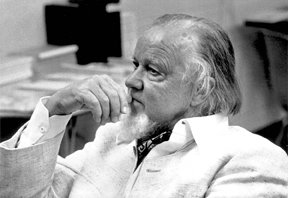Note from Randy Alcorn: Some churches today talk about grace, but cry out for a heavy dose of truth. Other churches embrace truth, but need a heavy dose of grace. (The Pharisees, God’s self-appointed gatekeepers, never emphasized grace. They were the Bible-believing conservatives of their day, but they drained the joy out of belief in God.)
But the gospel flies with the wings of grace and truth. Not one, but both. We should never approach truth except in a spirit of grace, or grace except in a spirit of truth. Jesus wasn’t 50% grace, 50% truth, but 100% grace, 100% truth.
Ray Ortlund’s directness and humility in this article are refreshing. I SO loved what he had to say here about the importance of orthodox doctrine (truth), and also gracious culture and lasting friendships (grace). Here’s what one of our EPM board members, Robin Green, wrote after reading it:
“This article really touched me. It brings me to my knees, asking God to show me (although I am not a pastor and he is addressing pastors) how to love orthodox doctrine... but not to the exclusion of gracious culture and lasting friendships. People are lonely! They long to be known and noticed and liked. But there are many obstacles and social anxieties involved in church culture. Only the grace of Jesus will help us find a way to open our hearts to others in the church. We are busy and want to leave immediately after the service ends. We want to be with people we already know and like because that’s easy, and we want to catch up and hear what they’re doing. That’s not bad but it can make it seem cold to some people. I confess that it’s difficult for me to overcome the feeling that I’m broken and don’t know how to be at church. I often feel anxious instead of relaxed, concerned that someone will be left out. Ray Ortlund is very frank and to the point. That’s refreshing. He gives readers something solid to think about.”
Should or Can in 2022?
By Ray Ortlund
 At the Lausanne Congress on World Evangelization in 1974, I heard Francis Schaeffer deliver the address which later became his essay, “Two Contents, Two Realities.” His overall point was this. If we hope to see profound gospel advance in our generation — and we do — then our churches must be marked by two contents and two realities.
At the Lausanne Congress on World Evangelization in 1974, I heard Francis Schaeffer deliver the address which later became his essay, “Two Contents, Two Realities.” His overall point was this. If we hope to see profound gospel advance in our generation — and we do — then our churches must be marked by two contents and two realities.
The two contents are (1) strong doctrine and (2) honest answers to honest questions. The two realities are (1) true spirituality and (2) the beauty of human relationships. That second reality, and even the way Schaeffer put it — “the beauty of human relationships” — has captivated me ever since.
I will venture my own proposal for preconditions of profound gospel advance today. I see three threads woven together wonderfully in authentic Christianity:
1. Orthodox doctrine;
2. Gracious culture;
3. Lasting friendships.
Orthodox doctrine is clear enough. We all want to align closely with the Bible.
Gracious culture is harder to define. This dimension of a church is more atmospheric, intangible. It’s a matter of relational tone and vibe and feel. Hopefully, every church’s culture embodies its orthodox doctrine. But that isn’t automatic or easy. We nurture it. For example, “Therefore welcome one another, as Christ has welcomed you, for the glory of God” (Romans 15:7). So, where can the glory of God be clearly seen in the world today? At your church, at my church, when we welcome one another as Christ has welcomed us. Christ has not just tolerated us but welcomed us — sincerely, wholeheartedly, cheerfully. And when that gospel doctrine in the Bible translates into gospel culture in a church, the glory of God can be seen in the world today. That’s gracious culture, and it is as authoritative, robust, serious and obligatory as orthodox doctrine.
Lasting friendships matter too, because faithful solidarity over the long haul proves the depth of our authenticity. It demonstrates our willingness to sacrifice for one another, when we feel like walking away. It’s also how we invest in the rising generation. With our track record of lasting friendships, our children can inherit the momentum and inspiration of partnerships that didn’t fragment but lasted through thick and thin.
I believe that orthodox doctrine, gracious culture and lasting friendships, if widely shared among our churches — by God’s grace, for his glory alone — can accomplish something profound in our generation. Much more could be said, of course. But I don’t see us making progress without these threads wonderfully woven together by us, among us.
So, at present, how are we doing? In my opinion, we — people who are drawn to this kind of website — we are strong on orthodox doctrine, but we’re weak in both gracious culture and lasting friendships. It seems to me that our Reformed tribe is less united and cohesive, more fragmented and aloof, than we were, say, ten years ago. Back then, I was wondering if our broad movement of gospel rediscovery might accelerate into historic revival. But by now, I wonder if we have squandered our historic opportunity.
Which leads me to wonder about the underlying quality of our commitment to orthodox doctrine. Our beliefs are of two kinds. We have opinions, on the conscious surface of our minds. We also have convictions, in the hidden depths of our hearts. If we are weak in gracious culture and lasting friendships, I wonder if our orthodox doctrine might be of the nature of opinion rather than of the nature of conviction. Strong opinion, to be sure! But not convictions that have settled deep into our hearts, changing us way down at the controlling center of our beings, sweetening us, drawing us together.
I think of myself as Exhibit A of how this can go wrong. The orthodox doctrine of justification by faith alone meant so such to me for so many years, even as I preached messages that counteracted the freeing impact of that very doctrine. I exhorted people too much, or in the wrong way. Exhortation is a biblical thing for a pastor to do. But the energy driving me deep within was not the happiness that flows from justification by faith alone. Something else was driving me. I felt responsible to preach expositional sermons, marked by orthodox doctrine, to help all those sorry Christians get it together!
As proof of the disconnect between my good theological opinions and my bad ministry convictions, I found a box of hard copy sermons of mine from the 1980s. They were horrible. I was sincerely orthodox. But there wasn’t enough grace in my wretched sermons, not enough encouragement, not enough tenderness, not enough Jesus.
I am so thankful for God’s patience! He didn’t give up on me. He helped me. Now my sermons are less horrible. Hopefully, the beautiful orthodoxy of gospel doctrine is flowing into the pastoral gentleness and comfort and guidance and encouragement inherent in that beautiful orthodoxy. Hopefully, there is more gracious culture in the pulpit, and hopefully, more lasting friendships outside the pulpit. Maybe the Lord can use even me, if not for a profound movement of his power in this generation, then for you younger pastors to enter into that Promised Land through my labors, along with the labors of so many other older pastors.
Which leads me to make a suggestion. Let me ask you younger pastors to think about experimenting with your ministry in 2022. What if, in your preaching, you risk one year of deliberately restraining exhortation and deliberately emphasizing encouragement? Less “challenge,” more assurance. Less “you should,” more “we can.” Less of how your people fall short of God’s standards, more of how God has opened up his treasures in Christ to the undeserving, the stragglers, the exhausted.
If, by the end of 2022, nothing at your church improves, you can always go back. But for just one year, rather than tell people to obey God’s holy law, why not help them obey God’s holy law and live for Christ and walk in the Spirit, as you trust in the power of God’s all-sufficient grace?
Maybe we haven’t lost our historic opportunity, after all. Maybe, for you at your church, it’s only a year away. One short year of reaching out to your dear people, through your preaching, with the gentle powers for good embedded in the very orthodoxy you rightly revere. With some tears. And some confession. And rejoicing to affirm, “In Christ our Savior, we — all of us together — can get traction for the better life we long for!” So, for just one year, maybe move all your chips over onto the square of God’s heart-melting grace in Christ crucified and risen again?
I believe Francis Schaeffer, and others of our spiritual forebears, would rejoice.
The article originally appeared on The Gospel Coalition, and is used with permission of the author.
Photo by Yuri Figueiredo on Unsplash




